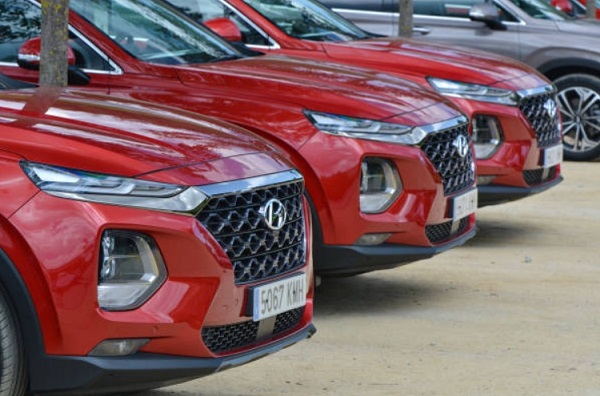Almost 13.75 million cars are sold each year in the United States alone. No matter your needs or preferences, there is almost no shortage of vehicles for you to choose from.
But, if you’re shopping for a car, it can be difficult and overwhelming.
Leaving the task up to a car dealership or salesperson often results in buyer’s remorse and a car you don’t like. The car buying process doesn’t need to be a stressful and unhappy experience.
Here are some tips on finding the right car for you.
1. Determine Your Budget
When it comes to buying a car, your budget encompasses not only the buying price but also the ongoing costs of owning and operating the vehicle.
Start by establishing the largest amount you’re willing to spend on the car itself. This is the most straightforward part of your budget. This figure should be realistic and align with your financial situation. It’s generally recommended not to spend more than 10% of your monthly income on a car payment.
Calculate the monthly payments you can afford. Consider the interest rate, loan term, and down payment. Contact insurance companies or use online tools to get insurance quotes for the specific make and model you’re interested in. Insurance costs can vary between vehicles, so this should be factored into your budget.
2. Identify Your Needs
Consider how you use your vehicle. Are you a daily commuter with long highway drives, or do you drive in city traffic? Your driving habits will influence factors like fuel efficiency, comfort, and handling.
Determine how many passengers you need to accommodate on a regular basis. If you have a large family you’ll likely need a vehicle with more seating capacity. A single person or a couple might opt for a smaller, more compact car.
Assess your cargo needs. Do you need ample cargo space for sports equipment, luggage, or other items? Consider whether you need a sedan, hatchback, SUV, or truck to meet your cargo demands.
Take into account the terrain and weather conditions in your area. If you live in a region with harsh winters or rugged terrain, all-wheel drive or four-wheel drive may be important for traction and stability.
3. Research Vehicle Types
There are several vehicle categories to consider, each with its own set of advantages and disadvantages. This includes sedans, hatchbacks, SUVs, crossovers, trucks, sports cars, hybrids, and electric vehicles.
Research the fuel efficiency of vehicles within your chosen category. Consider whether you want a gas-powered, hybrid, plug-in hybrid, or electric vehicle based on your environmental concerns and budget for fuel.
Investigate the safety features available in different models. Modern cars often come equipped with advanced safety technologies.
Look into the reliability and reputation of the brands and models you’re interested in. Consumer reports and reliability ratings from organizations can be valuable resources.
4. New vs. Used
Think about the pros and cons of each when choosing whether to buy a new or used car. New cars have warranties, the newest features, and are more reliable, but they also lose value quickly, cost more upfront, and have higher insurance costs.
Used cars have lower depreciation, are more affordable, and come with vehicle history reports. But, they may not be as easy to maintain and may have features that are out of date.
Your choice should be based on your budget, what’s most important to you, and how willing you are to deal with depreciation and possible repair costs.
5. Consider Resale Value
Resale value has a significant financial impact on your car ownership experience. Cars that keep their value well tend to cost you less in the long run. When you sell or trade in a high-resale-value car, you’ll get more money back. This can offset your initial investment.

All cars depreciate, but some depreciate less rapidly than others. Pay attention to the rate of depreciation, especially during the first few years, as this is when most cars lose a significant part of their value.
High resale value can also translate into lower financing costs if you decide to lease or finance your vehicle. Lenders may offer more favorable terms for cars that hold their value, resulting in lower interest rates and monthly payments.
6. Test Drive
Use the test drive to check how the car drives. Pay attention to its acceleration, braking, steering responsiveness, and handling. Does the car feel smooth and stable on the road? Does it handle well in various driving conditions, such as city streets and highways?
For used cars, it’s advisable to have a trusted mechanic inspect the vehicle before you buy it. While the mechanic won’t join you on the test drive, they can conduct a thorough examination of the car’s condition.
Don’t rush through the test drive. Spend enough time behind the wheel to get a real sense of the car’s performance and comfort. If possible, drive it in various conditions, such as on highways and in stop-and-go traffic.
7. Check Vehicle History
Checking the vehicle’s history provides you with valuable insights into its past, helping you make an informed decision. It can uncover hidden issues, potential risks, and the condition of the car.
Always insist on obtaining a vehicle history report when considering a used car purchase, and be cautious of sellers who are unwilling to provide this information.
8. Negotiate and Shop Around
Don’t hesitate to negotiate the price with the seller or dealership. Shop around at different dealerships like Coast Nissan and private sellers to compare prices, financing options, and incentives. Be prepared to walk away if the deal doesn’t meet your criteria.
Negotiating and shopping around can lead to significant savings and help you find the best deal on the car that meets your requirements. Being well-prepared, informed, and confident during the negotiation process is key to securing a fair price and ensuring a positive car-buying experience.
Find the Perfect Car for You
With the help of these tips, you can help make the process of finding the best car for you much more efficient with less stress. Make sure to test drive different vehicles to get a feel for the car and talk to trusted mechanics for more advice on the car that will best suit you. Don’t forget to compare different car models before making your decision. Start your search today and find the perfect car for you!




